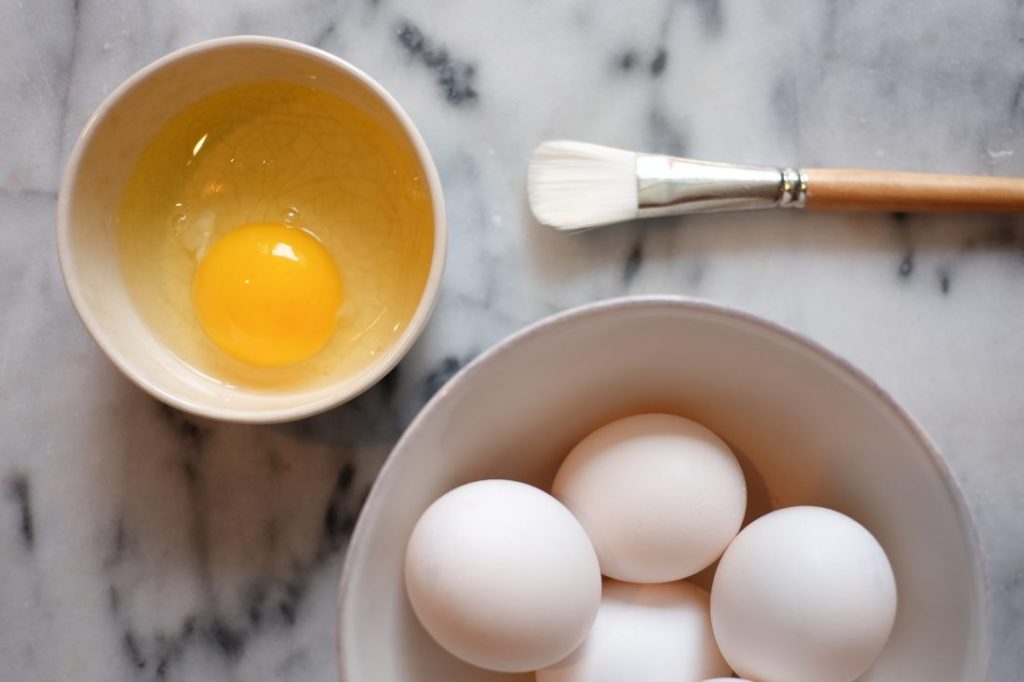Eggs are an excellent source of quality proteins and various essential vitamins and minerals.
Eggs play a significant role in the maintenance and nourishment of the skin. The high protein content of egg helps repair skin tissues, while the lutein provides the necessary hydration and elasticity.

Collagen production declines in our body as we age, which often leads to fine lines, loose skin, and dryness. The collagen and elastin present in eggs help strengthen the skin tissue. It also helps in improving the appearance of stubborn cellulite, thus reducing the skin’s lumpy and dimpled appearance.
Omega 3 and other essential fatty acids help regulate the hormonal function, thus reducing the chances of acne breakouts. Biotin helps in the prevention of dry, dull, and tired-looking skin. The zinc present helps in cellular regeneration. Lecithin in yolk helps remove toxins, and sulfur helps the absorption of vitamin B and regulating liver functions.
The UV-related damage to the skin, such as fine lines, brown spots, and dryness, can be kept in check by antioxidants Lutein and Zeaxanthin present in eggs. The direct application of eggs on the skin is said to help improve skin texture by softening, hydrating, tightening pores, and visibly firming up the skin. A patch test should be done before applying topologically as some people can be sensitive or allergic to the contents present in eggs. To be on a safer side, avoid using the egg mixture to any open wound or
break in the skin.
Ensuring that you consume eggs in moderation is essential because in some cases, overconsumption can lead to a build-up of intolerance over time and cause an inflammatory response.
So, as long as you include eggs in your nutritionally balanced diet with a good skincare routine, you can easily maintain a healthy-looking firm, glowing, youthful skin.
